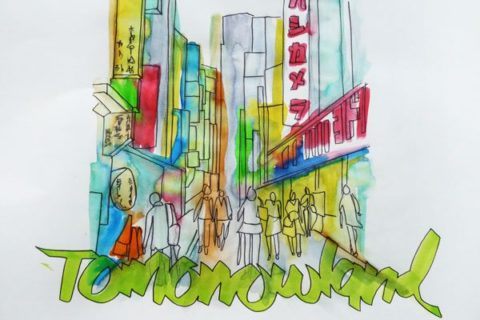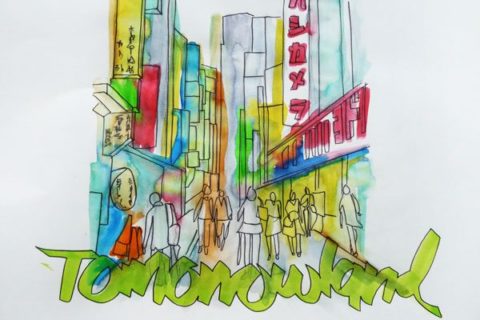SNP’s word of the day: Tomorrowland


Word: Tomorrowland
Meaning: A future based on yesterday’s fantasies, at least according to the Dictionary of Walt Disney; a metonym for retro-futurism.
Usage: “And, of course, there’s Tomorrowland. The time of date is 1986 there. The place is the city of the future, where a trip to the moon is an everyday thing.” — Art Linkletter on Disneyland, 1955
You should know it because: William Gibson, the fairly brilliant near-futurist/anti-futurist writer, has a new compilation of essays out. I haven’t read it; I read about it in the New York Times Book Review; and I know very well, thank you, how that sounds. You can buy the book, or if you’re not so sure, you can read Gibson’s 1993 Wired essay , the one that made every pre-chic geek in America want to go to Tokyo. Sofia Coppola, too—I wonder if Lost in Translation could have been made without this essay. “Tokyo has been my handiest prop shop for as long as I’ve been writing: sheer eye candy,” wrote Gibson. “You can see more chronological strata of futuristic design in a Tokyo streetscape than anywhere else in the world. Like successive layers of Tomorrowlands, older ones showing through when the newer ones start to peel.”
I love this employ of Tomorrowland. I didn’t know (or remember) until I googled it that Gibson had cribbed this “word” from Disney. If, unlike me, you had normal parents, you know the name from the Disneyland ride that bears it. But did you know that it comes from Walt Disney’s TV show, and his own magical brain? Watch this Tomorrowland montage on YouTube and marvel at its propagandistic mid-century American positivism. One thing hasn’t changed: it has always been easier to dream of Tomorrowland than to think about the future.







